Becky Hill: Not Missing A Beat
In creating her deeply personal second album Believe Me Now?, the chart-topping two-time BRIT Award-winner who fought hard to shake off the ‘featured artist’ tag, has become more sure of herself and it’s showing in her music
By Ben Jolley
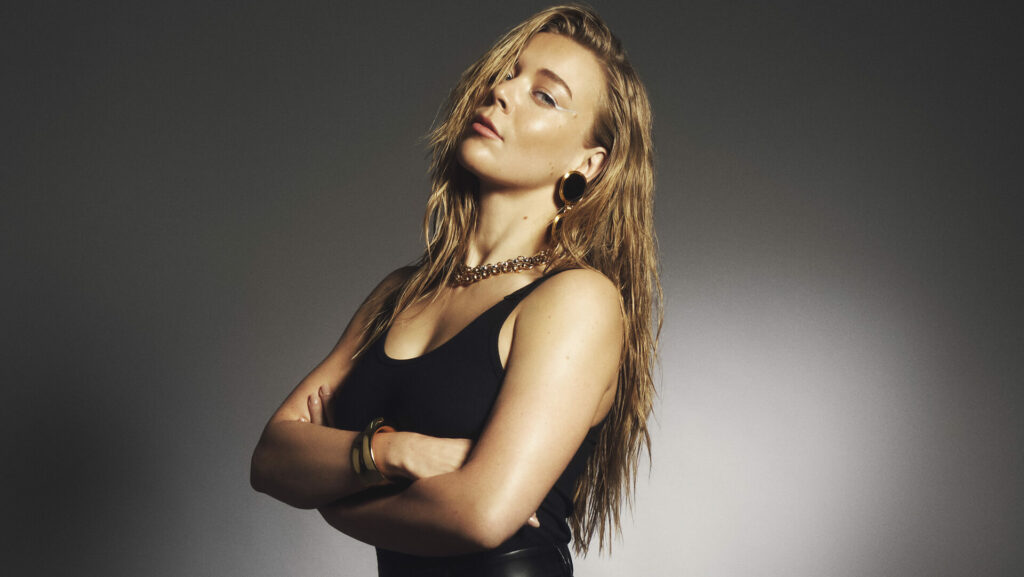
Becky Hill always knew she wanted to be a performer. She first set her sights on music as a toddler watching Sonique’s Top of the Pops performance in 2000. “I remember grabbing the telly as a two-year-old and going ‘I wanna do that’!” she says.
Regardless of who or what would get in her way, the Worcestershire-born artist was determined to make her dream a reality. Fast-forward to 2024 and the dance-pop vocalist and songwriter is widely regarded as one of the biggest names in British pop music. She may make it look effortless, but the chart-topping star’s journey to the top has been long and hard-fought. The two-time BRIT Award-winner – whose dazzling dance-anthem-filled second album Believe Me Now? is out on 31 May – wouldn’t have it any other way.
“I really feel like the universe has always looked after me, and given me a massive direction,” reflects Hill when Rolling Stone UK meets her at swanky Camden rehearsal studio FOMO.
It’s clear that her passion for music has never wavered; if anything, she’s more excited than ever to be going on tour. Spending time in Hill’s company, as she speaks openly about her career to date and the unpredictable challenges she has faced, before hearing her sing a capella during tour rehearsals alongside an incredible brass band – which is joining her on her European tour that began in Antwerp on 10 April – proves just how far she has come.
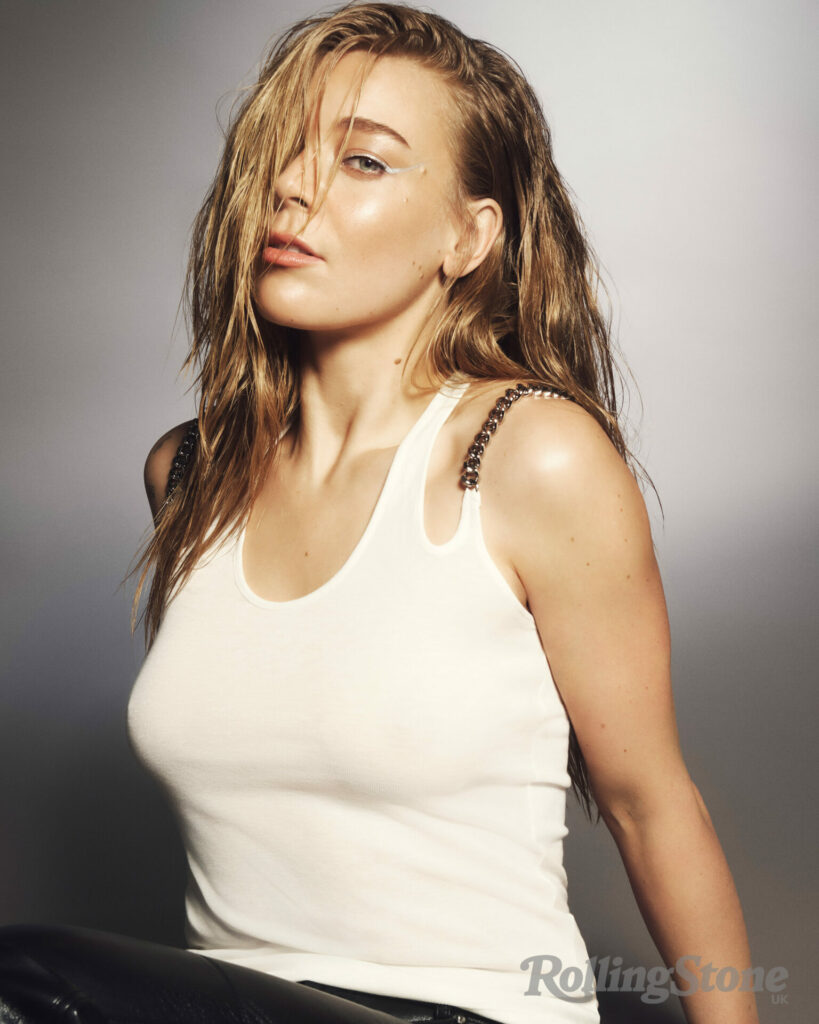
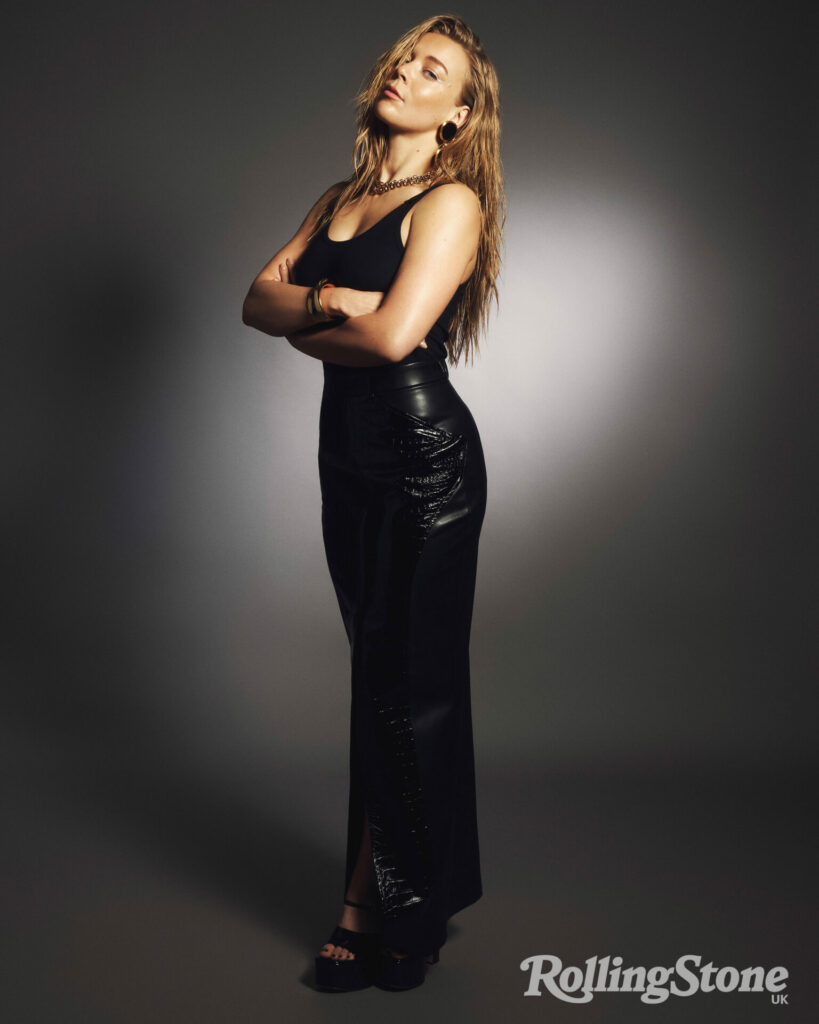
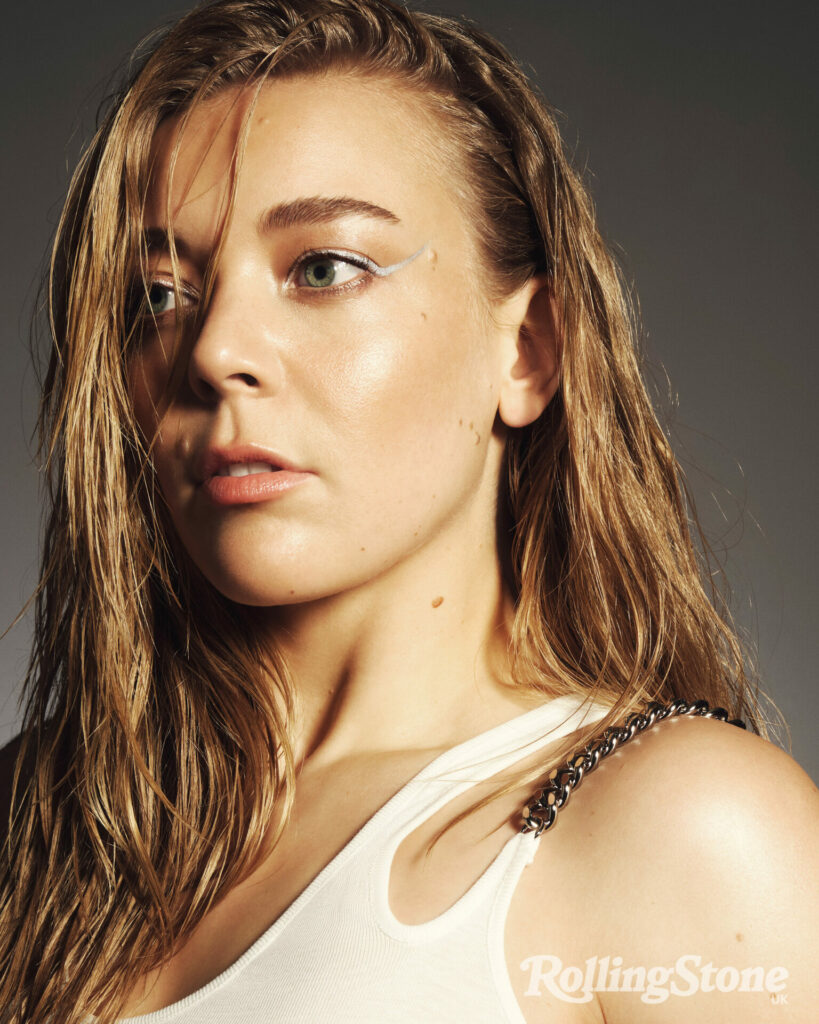
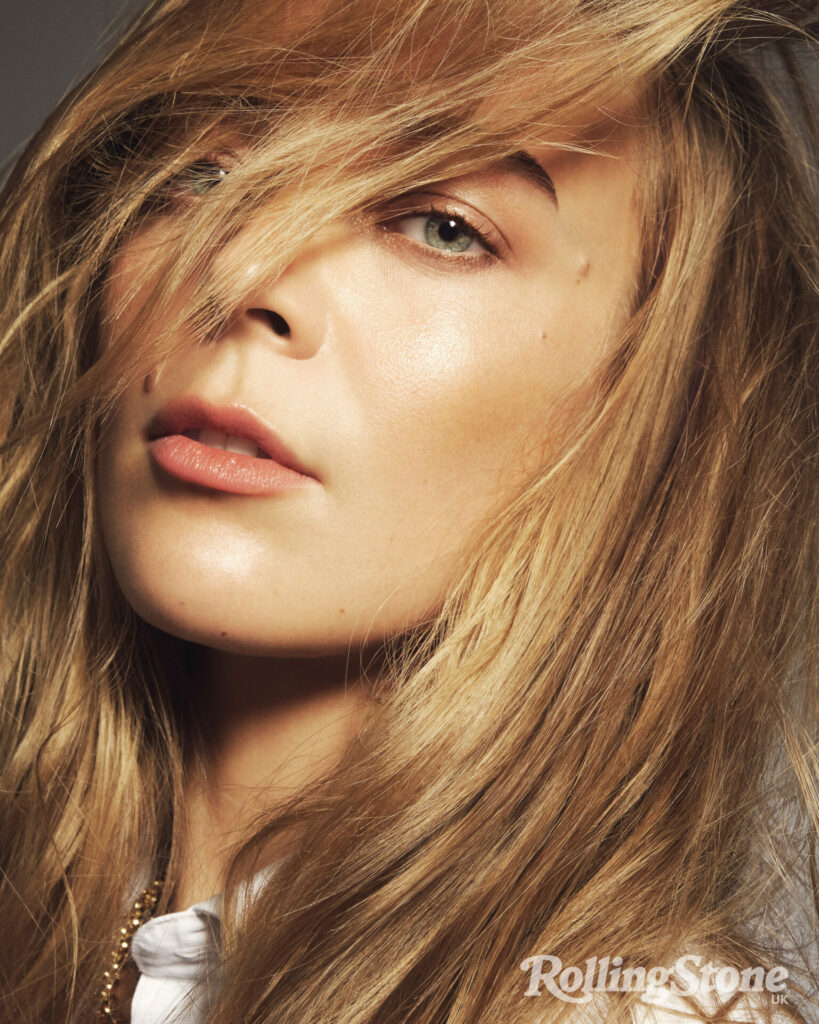
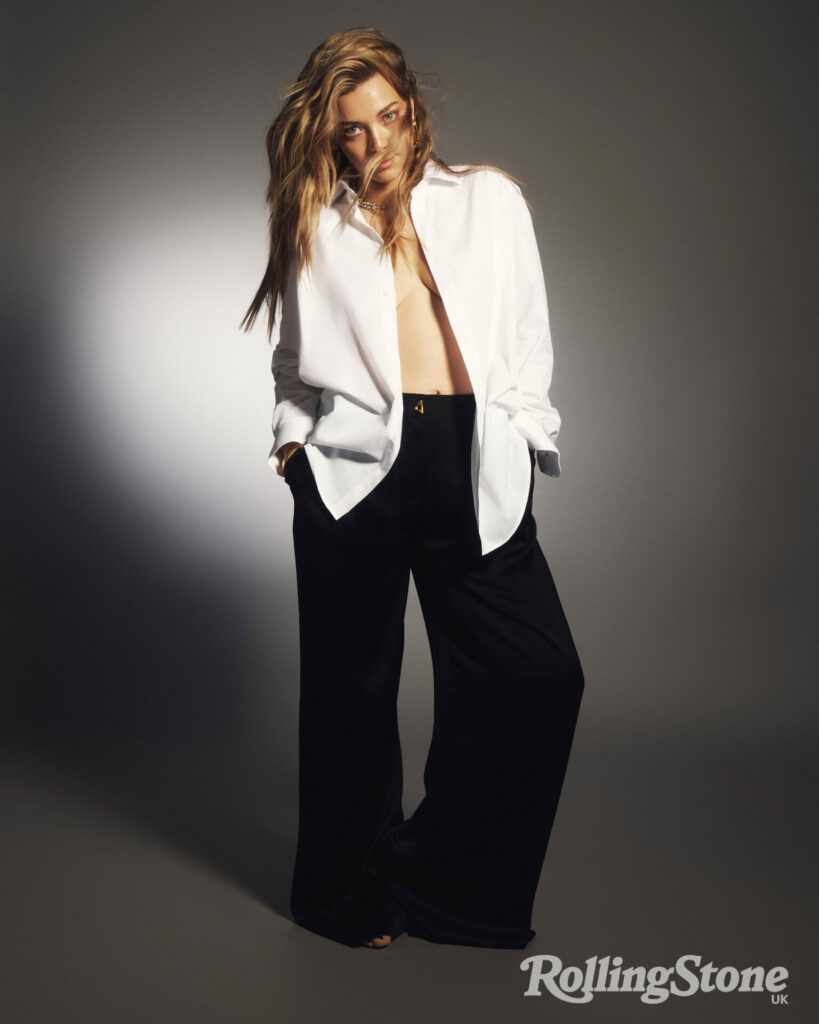
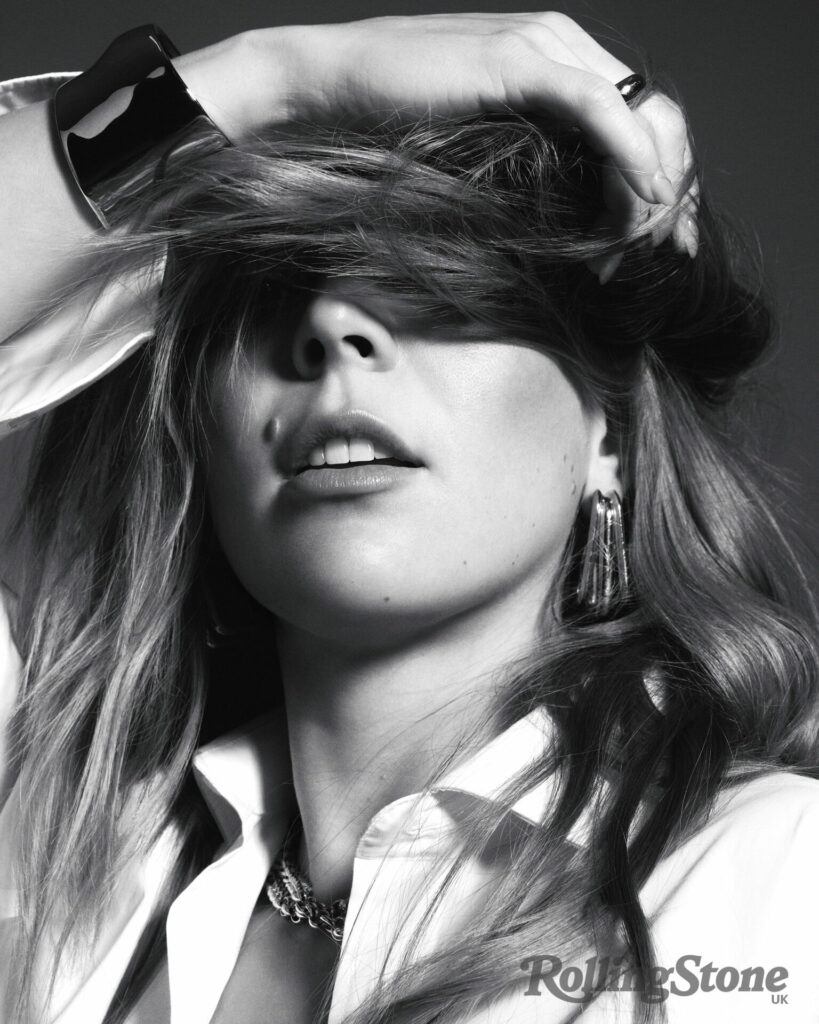
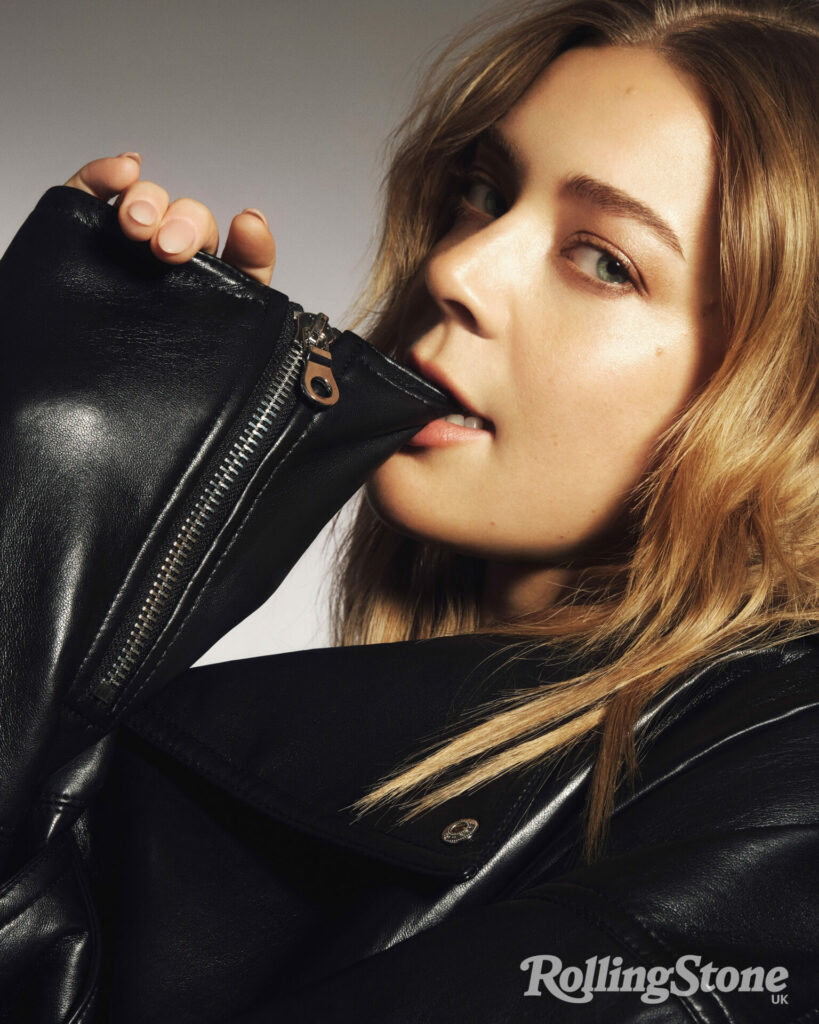
After Hill began to sing with her brother at the age of nine, their mum bought her a bright-pink guitar for Christmas. At age 10, she started guitar lessons. By this point, music was a part of everyday life: from her dad’s love of Northern Soul and her mum’s favourite musicians (Eric Clapton, Anastasia and Foreigner) to her brother’s love of all types of dance music (ranging from drum’n’bass to hardstyle and speedcore), and her older sister’s top bands including Breaking Benjamin, Maroon 5 and Evanescence.
Soon after, Hill began forming her own taste, which hinged on Robyn (“she was big for me”), Passion Pit (“that first album changed my life”), Biffy Clyro (“I think they’re incredible live”) and Bon Iver. “Diving deep” into the world of drum’n’bass led to her discovering scene leaders like Netsky and Wilkinson too.
When she sang publicly for the first time, aged 11, Hill recalls people turning around, looking at her parents and asking them, “Did you know she could do this?” A conversation about sending Hill to BRIT School followed, but it wasn’t financially feasible. However, upon coming to that decision, her glam-rock-loving mum said something that Hill has never forgotten: “If music is meant for her, music will find her.”
By her early teens, Hill had started writing her own songs and joined a band aged 15; within two years she had written a full 12 tracks that they performed locally together. It was while juggling working at a pub in the small town of Bewdley with doing the open-mic circuit that Hill received a Facebook message containing details of a competition called The Voice from one of her newfound community of musicians. Soon after applying, Hill found herself on the train to Birmingham. “I was 17, on my own, writing the lyrics to ‘Ordinary People’ on my hand,” she recalls. But, once she arrived and started seeing people doing vocal warm-ups in corners, she felt out of place. “I asked myself, ‘What the fuck am I doing here?’”
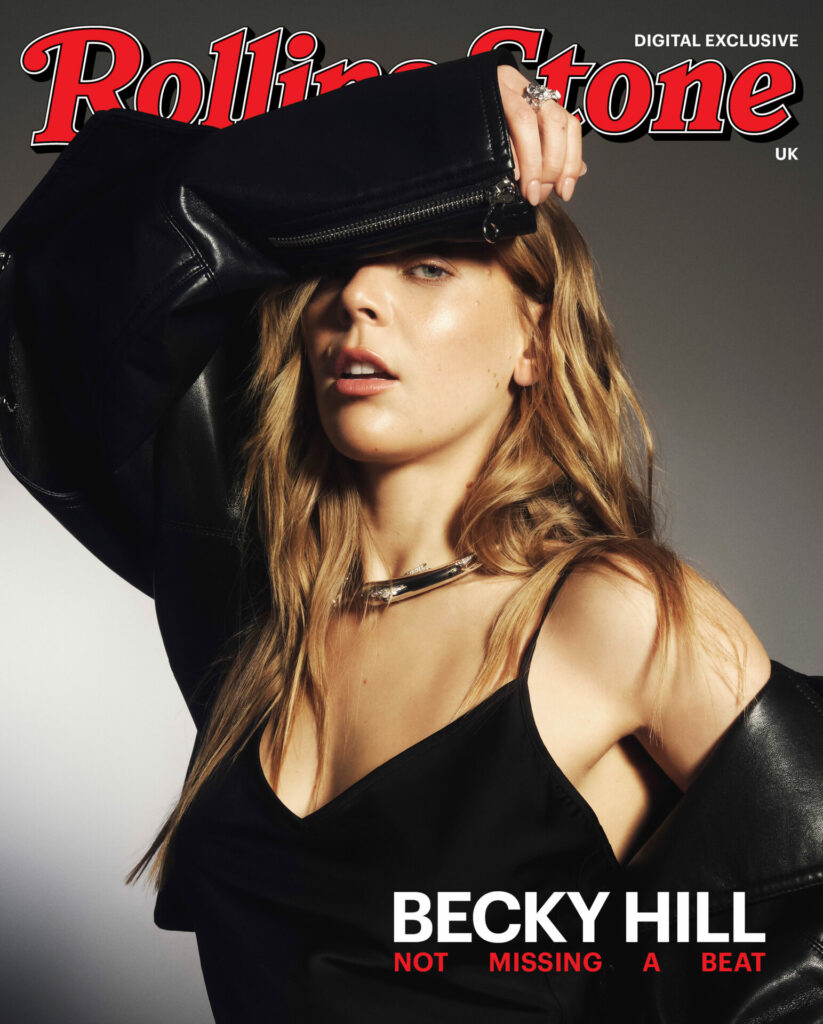
It was a surprise to Hill when her powerful rendition of John Legend’s ballad won over the judges. As this life-changing moment began to unfold, at the back of her mind was an awareness that she had a stack of sixth-form coursework to do and, due to feeling low emotionally, was falling “quite deep into a depression”. For both reasons, she realised that the show would be a legitimate excuse to get out of her studies – “because they can see me live on Saturday night TV every week”. Hill also had an epiphany: “I thought, ‘Anything has got to be better than working two bar jobs and feeling incredibly miserable about my life because I don’t know where it’s going.’”
Her stint on the TV talent show’s debut series in 2012 was like “going to university” she remembers. She moved to the capital at 18. “I had the time of my life,” she says of the experience. Going out raving for the first time on her 18th birthday was life-changing too. “I hadn’t experienced a roomful of people who were completely equal,” she recalls of stepping inside London clubbing institution fabric for a drum’n’bass night hosted by Playaz Recordings where she saw sets by Taxman and Original Sin. “It didn’t matter how you were dressed or spoke, what your parents did or where you were from or who you know. It was purely about dancing to music. I loved it and didn’t look back.”
When Hill was voted off The Voice, she had one internal question: ‘How do I have that much fun all the time?’ Though tempted after meetings with potential managers – one promised her “100 grand in six months” – she ended up signing with Alex Martin, who remains her manager today.
A tour with drum’n’bass band Rudimental followed when Hill was 19 and unsigned. While starting to learn her craft as a performer, ‘Afterglow’ (her collaboration with drum’n’bass producer Wilkinson) was released, Hill got signed and the track entered the Top 10 in late 2013. “It was my first big hit, and everything just went from there,” she recalls. In July 2014, Hill scored her first number one single with ‘Gecko (Overdrive)’ with EDM producer Oliver Heldens.
In November of that year, Hill released her debut solo single, ‘Losing’, through Parlophone. But the high didn’t last after she was dropped right before Christmas. “I felt like it was my fault,” she recalls. Disillusioned with big labels, she decided to launch her own, EKO Music, and took a DIY approach when it came to her debut EP, music videos, remixes, artwork, and her first headline show at Electrowerkz in 2016. But the financial pressure was tough. “When you’re £90,000 deep into releasing your music, aged 22, you start to wonder if you’re doing it for the right reasons,” she says.
Undeterred, Hill scored a dozen more chart hits over the next few years, lending her voice to radio-dominating bangers like ‘Piece of Me’ with MK and ‘Wish You Well’ with Sigala. However, such success made it difficult for her to shake off the ‘featured artist’ tag. “Everybody was still more bothered about the producers making the songs rather than the female vocalist on them – although I was writing and singing all of these records,” she says. Though she’s “grateful for all the success”, Hill says, “the ambition has always been to make a success of myself in my own right.”

A meeting with Polydor Records proved a turning point, with Hill going on to release her debut album Only Honest on the Weekend in 2021. That time was “very uncertain”, she says, “because I didn’t have much confidence at all”. After some negative reviews – “I listen to everything” – release day resulted in her sobbing into the box of CDs. “I think I realised ‘This is what it’s all for,’ but it was the idea that I actually had something to show for it.”
As the songs chronicled nine years of Hill’s life where a lot happened, she says, “it still felt very unsure of itself” and suggests there was a three-way battle going on – “between pop music, mid-tempo pop music, and dance-floor, rave music. It hadn’t quite figured itself out.” Despite this, Hill stayed determined. “I loved the music I was making and how lucky I was to do this job. There were some amazing songs on it, too.”
Album two, then, represents Hill’s evolution – both as a person and artist. “It’s a concise body of work, and totally clear on its direction… everything feels like it belongs together,” she says. Alongside showcasing her singular powerhouse vocal and stunning acrobatic range, Believe Me Now? finds Hill leaning into her dance music roots, with her feet planted firmly in the club (especially on rave-ready ‘Linger’). “Dance music is probably the most progressive, versatile and culture-changing genre there is,” enthuses Hill. “I want to show that it can still be emotive, euphoric and intimate, like when I was growing up,” she adds, recalling crying to songs by her ‘Disconnect’ collaborators Chase & Status.
Weaving between drum’n’bass, house, techno and trance, the beats are harder and faster than ever (aside from acoustic Adele-like mid-album breather ‘Man of My Dreams’). Throw in strong pop hooks, singalong choruses and grandiose orchestral strings, and Hill has crafted a record’s worth of festival-ready anthems.

It’s not just the deeper production that sounds more sure of itself though – Hill’s lyrical inspiration has matured, too. “I chuckle when I listen to ‘Better Off Without You’,” she laughs, citing its “nursery rhyme” lyrics. This time round, Hill wanted to write something that felt “a little heavier, but that everybody could connect to”, like how she felt when listening to Robyn’s seminal record ‘Body Talk’. “I wanted this album to reflect a more grown version of me,” considers Hill, who recently turned 30.
Despite being a “daunting task because, at the time, I was really happy”, it resulted in her homing in on the theme of loneliness – “especially the idea of being surrounded by your loved ones yet still feeling a sense of emptiness”. Though a concept, the narrative rang true for Hill on a personal level. This is conveyed right from album opener ‘True Colours’, which was written about her experience of sexual assault at the age of 21 by somebody she “really trusted”. The song’s message had been gestating for some time. “It had been eating me away for eight years,” she explains. Written with artists Lauren Aquilina, MNEK and Ryan Ashley when Hill was “deep into therapy” and hadn’t yet reported the incident to police, she remembers bursting into tears in the studio. “It was a beautiful moment that we shared, even though it was unbelievably hard for me. They gave me room and space to let that feeling be felt.”
Hill was adamant that it wouldn’t be a sad song, however. “I wanted to write something that was fucking angry and an absolute bop, she says, adding that inspiration came from Kelis’s ‘Caught Out There’ and ‘Acapella’, and the D Ramirez remix of Yeah Yeah’s ‘Bodyrox’. “I hope it gives other people the anger they need to back themselves and feel empowered,” Hill attests.
Taken from the repeated hook of ‘True Colours’, the album’s title, Believe Me Now?, opens a Pandora’s box. “The whole of my twenties were overwhelmed and absorbed by this idea that I had to prove myself,” reflects Hill. “The fact that my friends didn’t believe me about the sexual assault, and that I had to go to the police and consistently prove myself. Proving myself in my job, and to people back home that I hadn’t gone on TV and changed for fame. Then there was this idea that ‘nobody cares about the featured singer’ and having to tell people I was an artist and that they should be listening to my own records.”
A huge step up from her debut, Believe Me Now? is a record that grabs attention and refuses to be ignored. It should also silence those who once doubted Hill’s chance of success, particularly within the dance world. “I was told it’s not a global prospect, because being a global artist in dance music is only reserved for a handful of people – and they are usually men,” she says defiantly. Hill hopes to change that with album two: “I want to be the next Calvin Harris or David Guetta.”

Effortlessly commanding the camera and giving badass energy, Hill’s Rolling Stone UK digital cover shoot – in which her choice of statement vests channel Linda Hamilton in The Terminator – further conveys her ambitions. Miles away from the unsure teenager she started out as, much like the combatant character Sarah Connor, Hill refuses to be ignored.
She’s well on the way to taking her crown, having helped pave the way for a new generation of female dance artists, including Jazzy, Hannah Laing and Hill’s former touring DJ turned electronic artist TSHA. “There’s so much love between us because we’ve known each other for eight years,” she says. “It’s amazing what she’s done, especially with how determined she was.”

On an industry level, Hill feels that women are getting more respect than ever. Alongside the growing number working behind the scenes, she references Radio 1 DJs Sarah Story and Jaguar’s Ibiza residencies. “It’s so good to see,” she says. Although too modest to give herself credit for helping to lead the change, she adds, “Sometimes I do feel like it’s much bigger than me and that I’m doing it for a cause.” This belief has stopped her from quitting: “I want a legacy – to be a trailblazer.”
Post-album launch, as Hill now heads out on her first European tour, she’s again levelling up. Taking a full live band – including three string players, three brass and two singers – she’s excited “to give people a proper show. For so long it’s just been me, the backing singers… and a projector,” she laughs, describing her previous gigs as having “working men’s club energy, but for crowds of thousands”.
This time, she has world domination in her sights. “I’m hoping this is the year I begin to go global,” she says determinedly. It seems that Becky Hill’s long-awaited superstar moment is finally here. That instinct she exhibited as a toddler was right all along.
CREDITS: Photography: Mark Cant, Creative: Joseph Kocharian, Styling: Richard Saint-Ford. Make Up by Wendy Turner using Surratt and hair by Laura Chadwick using BaBylissPRO and Olaplex.
